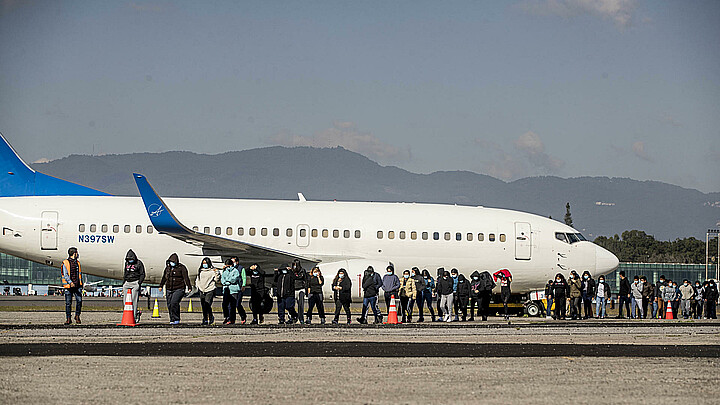Immigration
White House considers sending Haitian migrants to Guantanamo amid possible mass exodus
The White House is predicting that many Haitians will try to flee the country once the fuel blockade is lifted and can leave the country by boat
October 31, 2022 4:25am
Updated: October 31, 2022 9:54am
The Biden Administration is considering temporarily sending Haitian migrants to Guantanamo Bay as it prepares for a mass exodus of Haitians amid growing gang violence and political instability, according to a report published on Sunday.
The National Security Council is working with the Department of Homeland Security to consider the options to house the growing number of Haitian migrants leaving the country, including using an existing intake center in Guantanamo Bay or designating a third country to temporarily hold the migrants.
Designating a third country, commonly referred to as a “lily pad,” to hold and process Haitian migrants found at sea would most likely overwhelm a given country, according to U.S. officials. Most likely these migrants would need to be taken to Guantanamo, they added.
The Migrant Operations Center in Guantanamo has been housing migrants that have been picked up at sea by the U.S. Coast Guard in the Caribbean for almost three decades. According to the report, the center currently has a capacity of 400 beds. However, plans are under consideration to possibly double its capacity.
Haiti has seen a spike in gang violence, along with political instability and nationwide shortages
Last month, Haitian gangs blocked the nation’s main fuel supply terminal after Haitian Prime Minister Ariel Henry announced a fuel price hike. The blockade has led to a shortage of water and other basic goods. At the same time, the country has experienced a cholera outbreak.
According to the U.N.’s International Organization for Migration, around 69,000 people have fled their homes in Haiti’s capital and have sought safety in other parts of the country. The White House is predicting that many of these Haitians will try to flee the country and try to reach the U.S. once the fuel blockade is lifted and can leave the country by boat.
A spokesperson for the DHS said the agency “continues to closely monitor the situation in Haiti and there are longstanding contingency plans ready in the event of a surge in maritime migration. As we have repeatedly said, irregular maritime voyages in the Caribbean are always dangerous and very often deadly, and we urge individuals not to put their lives at risk.”










